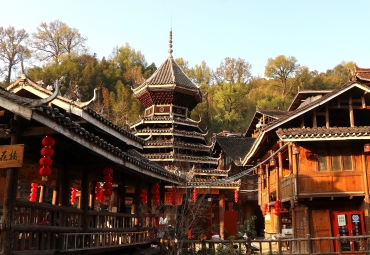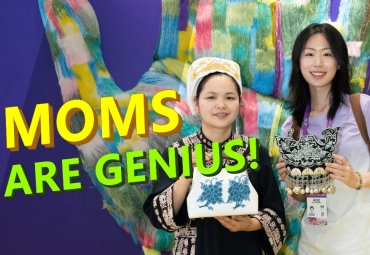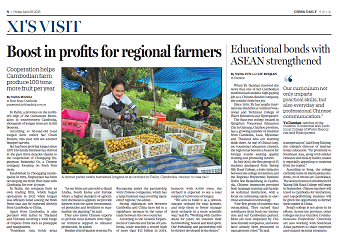Guizhou's Tongren turns lush mountains into invaluable assets

Wanshan's abandoned mercury mine has become a tourist attraction and sells cinnabar handicrafts. [Photo/ddcpc website]
Wanshan district in Tongren city, Southwest China's Guizhou province, used to be heavily dependent on its mines and faced an urgent need to find new drivers of development after its mercury mine closed in 2001.
After more than 10 years, Wanshan is now on the road to green development. In 2021, its GDP was 8.64 billion yuan ($1.28 billion), a year-on-year increase of 8.6 percent.
In 2015, Wanshan attracted 2 billion yuan in investment to turn the abandoned mercury mine into a scenic spot. It also invested 300 million yuan into the construction of an industrial park to produce cinnabar handicrafts, which are exported to South Korea and Japan.
A leading vegetable company was invited to promote its greenhouse vegetable growing technology training and industrial development model in Wanshan, and Wanshan hired 10 experts from the company to teach local farmers to grow vegetables.
So far, Wanshan has established 79 greenhouse vegetable bases covering a total area of 2,000 hectares, and more than 2,173.33 hectares of high-standard farmlands with a grain output of more than 50,000 metric tons per year.
The industrial scales of the mushroom, fruit and animal husbandry industries are growing, and the conversion rate of agricultural products is 55 percent.
In Wanshan's Watian village, where per capital farmland is only 0.02 hectares, Chinese bramble grapes are planted on barren mountains to increase locals' incomes. The average annual income in the village is currently more than 17,000 yuan.
All rights Reserved. 京ICP备13028878号-8







 Overview
Overview Guiyang
Guiyang Guian New Area
Guian New Area Liupanshui
Liupanshui Anshun
Anshun Qianxinan
Qianxinan Qiandongnan
Qiandongnan Qiannan
Qiannan Zunyi
Zunyi Tongren
Tongren Bijie
Bijie Guizhou commits to culture preservation and rural vitalization
Guizhou commits to culture preservation and rural vitalization Guizhou voice at 2025 national two sessions
Guizhou voice at 2025 national two sessions Meet the 'genius moms' at Shenzhen cultural fair
Meet the 'genius moms' at Shenzhen cultural fair 

